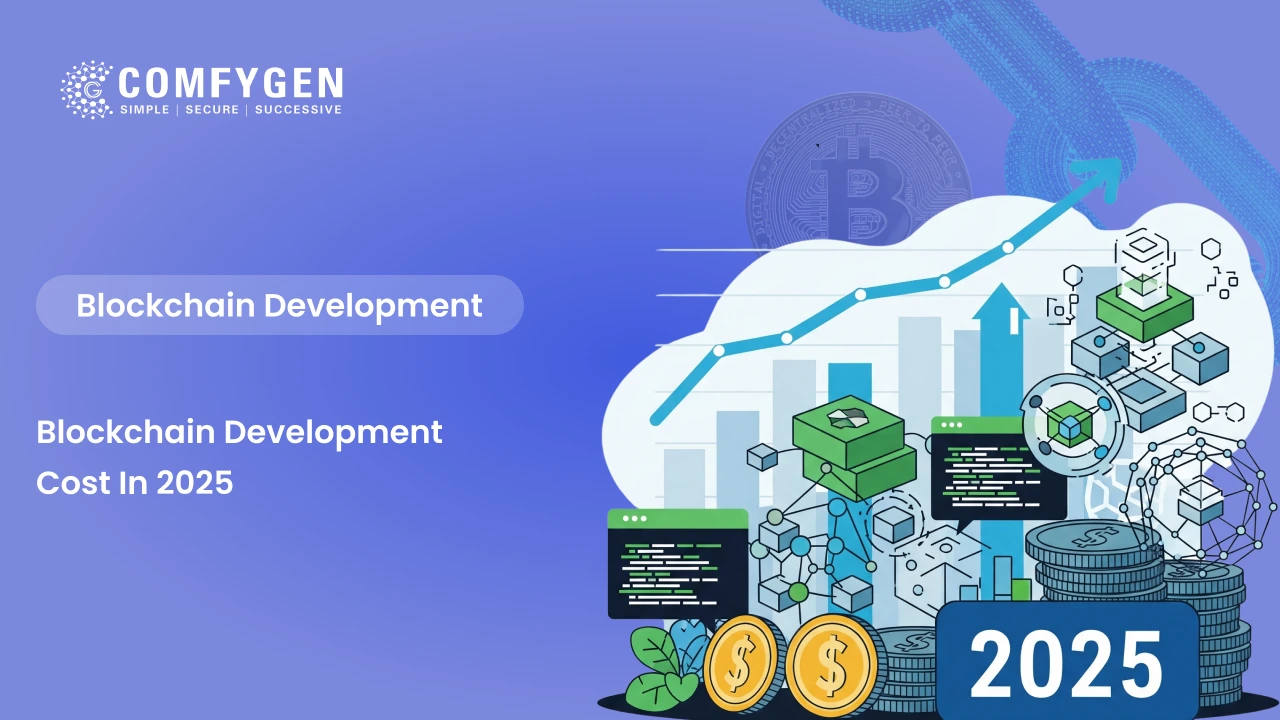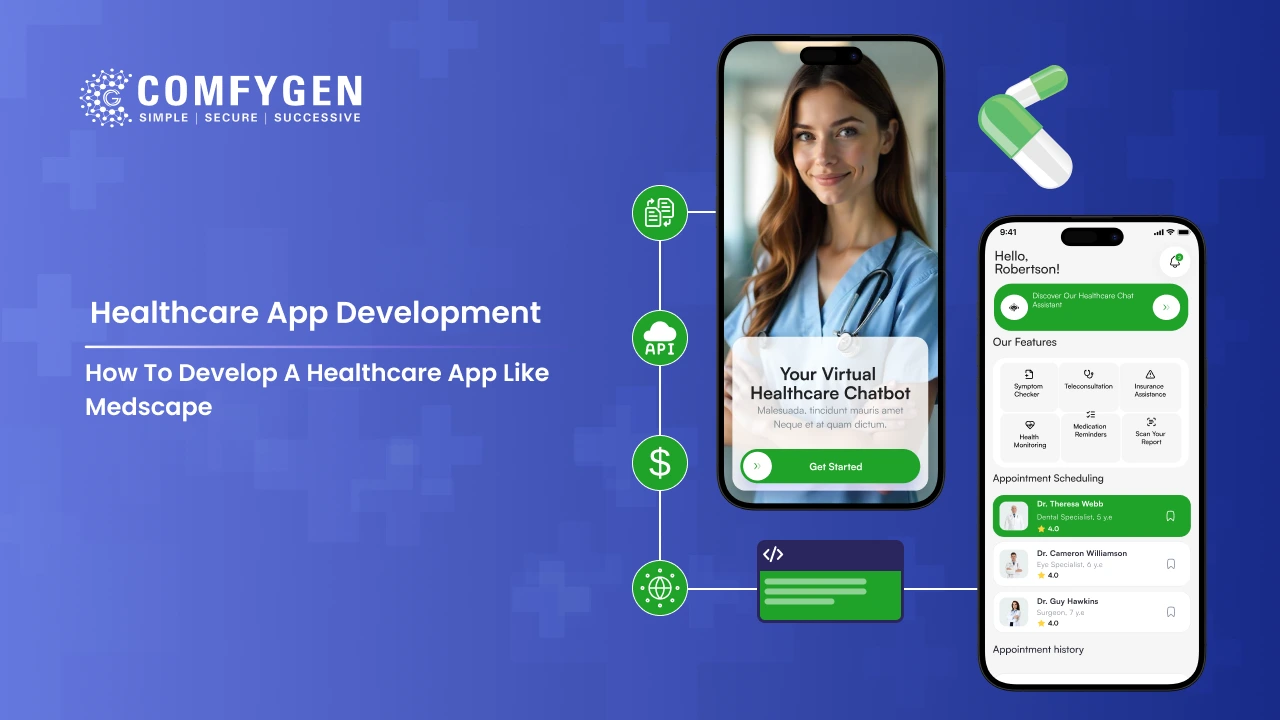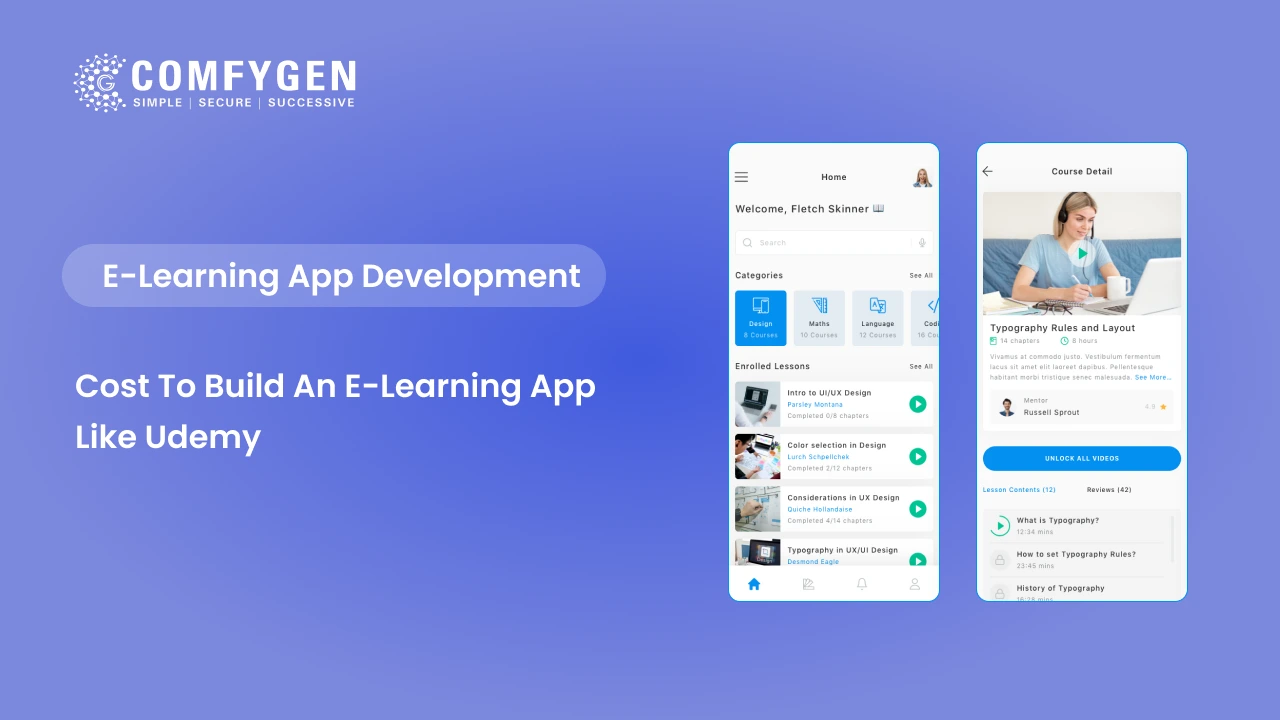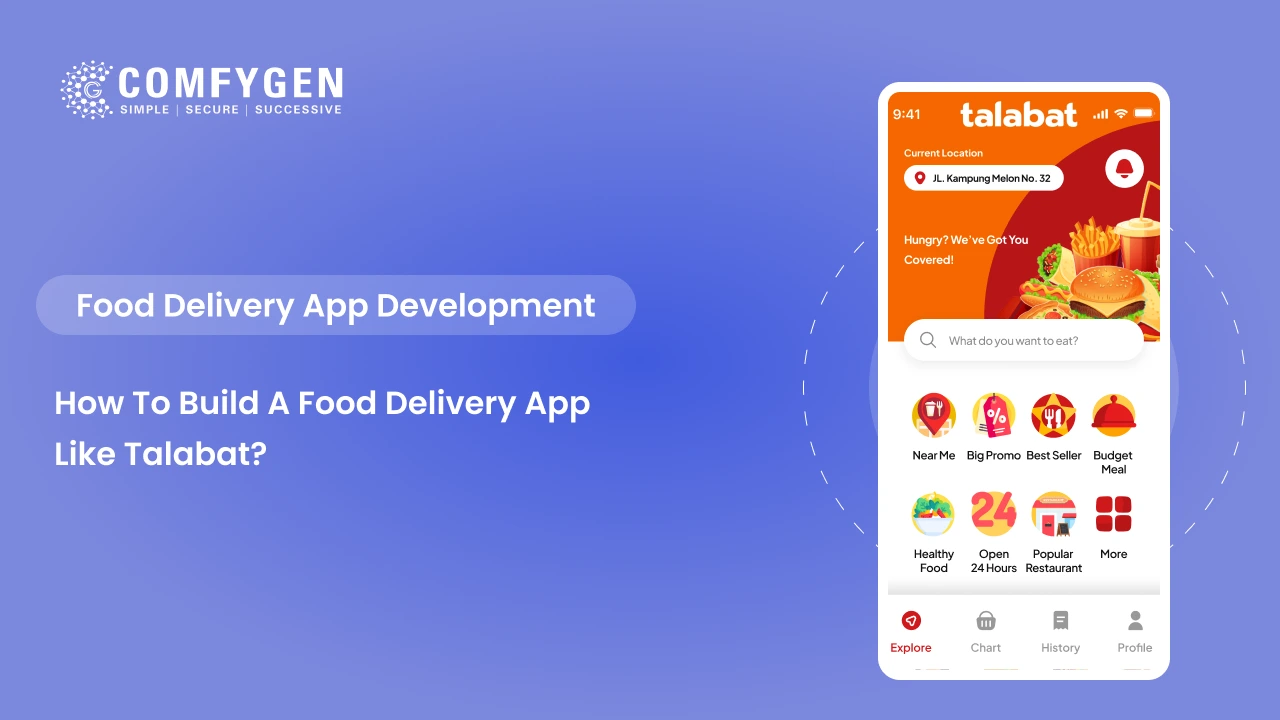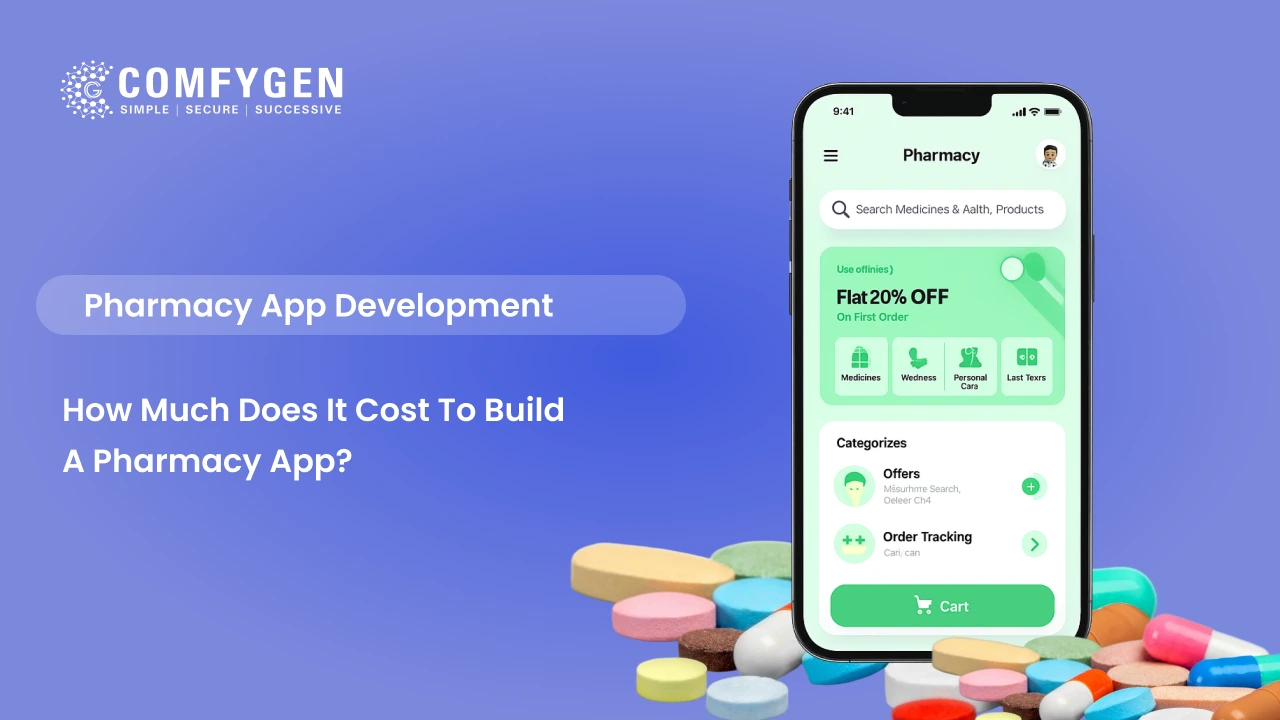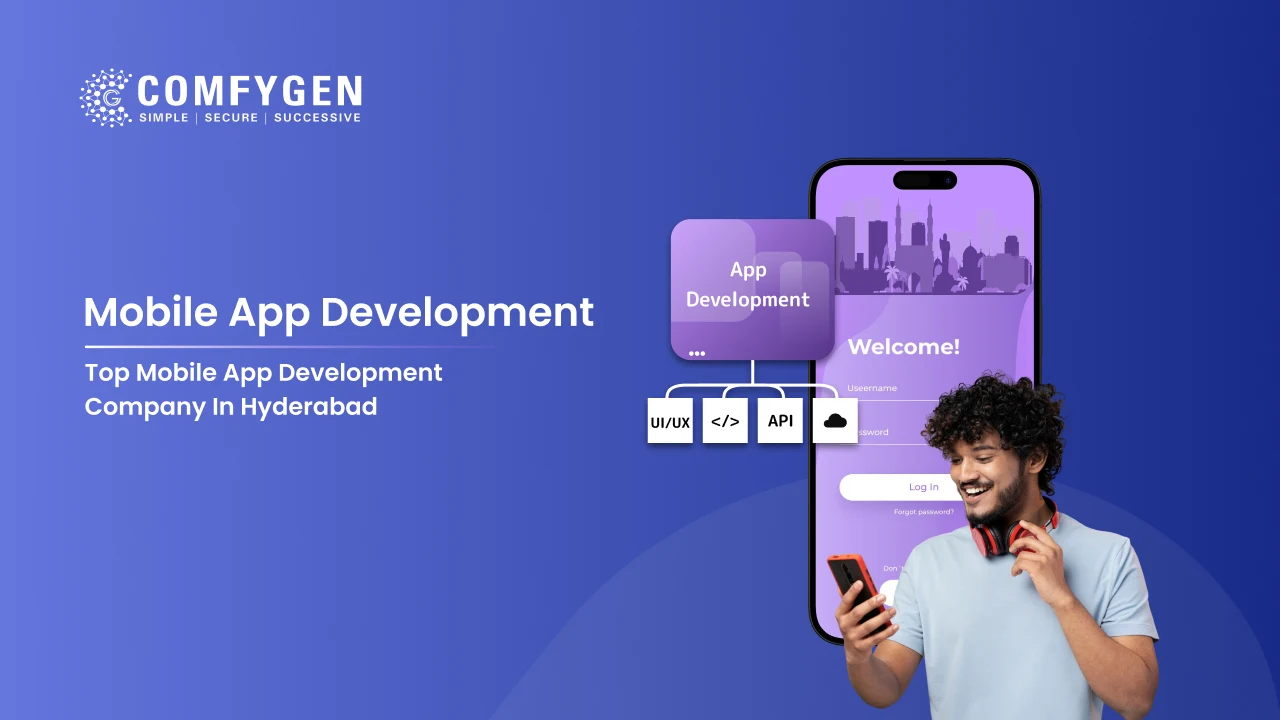Blockchain isn’t just a buzzword anymore. Businesses lean on it for trust, automation, transparency, and strong security across sectors like finance, supply chain, healthcare, and gaming. And with demand rising, understanding blockchain development cost upfront has become just as important as choosing the right tech. Everyone wants systems that remove middlemen and keep data tamper-proof, but building them the right way takes real planning.
Creating anything on blockchain isn’t cheap if you walk in blind. The cost can swing wildly depending on the complexity of your idea, the chain you choose, and how much custom logic your product needs. When teams skip early budget planning, they usually run into delays, overruns, or products that don’t scale well.
This guide clears the fog. You’ll see realistic cost ranges, what actually drives pricing, how different development models shape your budget, and the hidden expenses most people only notice at the end. By the time you finish, you’ll have a solid grip on what it really takes to budget a blockchain project with confidence.
How Much Does Blockchain App Development Cost?
The Blockchain solution Development Cost depends on project complexity, features, platform, and developer location. On average:
| Type of Blockchain Solution | Development Cost (Approx.) |
|---|---|
| Basic Blockchain App | $25,000 – $50,000 |
| Medium-Complexity Blockchain App | $50,000 – $120,000 |
| Advanced / Enterprise Blockchain Solution | $120,000 – $300,000+ |
The Cost to develop a blockchain application varies because every business has different goals, functionality, and technology requirements.
Factors That Affect the Cost of Blockchain Development
Understanding the pricing structure is essential when planning a blockchain project. Several key factors influence the cost of a blockchain software development project, and analyzing them can help businesses estimate their investment accurately and avoid unexpected expenses.
App Complexity
The complexity of the project has the biggest impact on the blockchain app development cost. A simple blockchain app with basic functionality, such as user registration, login, and wallet features, requires minimal development effort.
However, a highly complex decentralized system like a DeFi platform, crypto exchange, or supply chain tracking system demands advanced security architecture, multi-layer permissions, and complex node structures.
| Complexity Level | Development Cost |
|---|---|
| Basic Blockchain App | $25,000 – $50,000 |
| Medium Blockchain Application | $50,000 – $120,000 |
| Complex Enterprise Blockchain Solution | $120,000 – $300,000+ |
Type of Blockchain Platform
Choosing the right platform directly affects the price of creating a blockchain application. Each blockchain network has a different architecture, development tools, scalability, and deployment cost.
| Platform | Description |
|---|---|
| Ethereum | Popular for smart contract-based apps and dApps |
| Hyperledger | Best for private enterprise blockchain development |
| Solana & Polygon | Faster transactions with lower fees |
| Binance Smart Chain (BSC) | Ideal for crypto-based apps and token standards |
Features & Functionality
The number of features determines the actual development time. Apps with real-time dashboards, analytics, multi-currency wallets, KYC verification, liquidity pools, staking, or exchange modules require more effort.
Common Advanced Features That Increase Blockchain App Development Cost:
-
Multi-layer security & encryption
-
API and third-party payment gateway integrations
-
Smart contract automation
-
Token creation (ERC-20, ERC-721, SPL, BEP-20, etc.)
-
Admin dashboards and control panels
Smart Contract Development & Auditing
Smart contracts power the automation of blockchain systems. The Smart Contract blockchain development cost depends on the logic complexity, coding language, and required security audits.
| Smart Contract Type | Cost Range |
|---|---|
| Basic token smart contract | $5,000 – $15,000 |
| Medium-complexity contract | $15,000 – $35,000 |
| Advanced business logic smart contract | $35,000 – $70,000+ |
Developer Team Expertise & Location
The location and experience level of blockchain developers greatly impact the Cost to hire blockchain developers. Countries like India offer budget-friendly development without sacrificing quality, while US-based developers charge premium rates.
| Region | Hourly Developer Cost |
|---|---|
| India | $25 – $60 / hour |
| Eastern Europe | $40 – $80 / hour |
| UAE | $60 – $120 / hour |
| UK | $70 – $150 / hour |
| USA | $80 – $180 / hour |
UI/UX Design Requirements
A well-designed user interface improves app performance and user-friendliness. Complex front-end designs, dashboards, real-time updates, and animation features increase pricing.
| Design Cost | Range |
|---|---|
| Basic UI/UX | $3,000 – $8,000 |
| Advanced UI/UX | $10,000 – $25,000 |
Security, Maintenance & Scalability
Blockchain requires high-level encryption, penetration testing, and regulatory compliance, including KYC/AML standards. Ongoing maintenance and upgrades affect the long-term blockchain development.
| Additional Cost Areas | Price Range |
|---|---|
| Security & auditing | $5,000 – $30,000 |
| Hosting & infrastructure | $5,000 – $20,000 / year |
| Maintenance & support | $2,000 – $10,000 / month |
Planning to Build a
Custom Blockchain?
GET IN TOUCH
Blockchain Development Cost Breakdown (Feature-wise)
Understanding the blockchain development cost breakdown helps businesses plan the right budget based on required functionalities.
Every feature added to a blockchain application directly impacts the overall blockchain app development cost because it increases development time, testing, and deployment complexity.
Below is a detailed explanation of each feature and its approximate pricing.
| Feature | Estimated Cost Range |
|---|---|
| User Management | $5,000 – $10,000 |
| Smart Contract Development | $10,000 – $50,000 |
| Wallet Integration | $8,000 – $15,000 |
| API & Third-Party Integrations | $5,000 – $20,000 |
| Admin Panel Development | $5,000 – $12,000 |
Blockchain App Development Cost Based on Type
The cost of developing a blockchain project varies based on the type of blockchain solution you want to build. Every blockchain project requires different levels of security, decentralization, feature complexity, and technology stacks.
Below is a fully detailed breakdown of the cost to develop various types of blockchain applications to help businesses evaluate budgets effectively.
| Blockchain App Type | Estimated Cost |
|---|---|
| Cryptocurrency Exchange Platform | $60,000 – $300,000+ |
| DeFi Applications | $80,000 – $350,000+ |
| NFT Marketplace | $50,000 – $250,000 |
| Smart Contract-Based Apps | $10,000 – $70,000+ |
| Private Blockchain Networks | $120,000 – $500,000+ |
| Supply Chain Blockchain Solutions | $70,000 – $250,000 |
Complexity of the Blockchain development Projects
The complexity of the blockchain solution—whether it’s developing new cryptocurrency, implementing smart contracts, or decentralized applications development (dApps)—directly affects the blockchain development costs:
Smart Contract Development
- Costs can vary from a few thousand dollars to several million, depending on the logic, features, and required security audits.
- Complex contracts (DeFi protocols, multi-signature wallets, DAO governance) require more rigorous testing and third-party audits, significantly raising expenses.
dApp (Decentralized Application) Development
- A simple dApp development costs around $15,000 – $30,000, while advanced applications with multiple integrations, tokenomics, and cross-chain support can reach $200,000+.
- Costs increase with features like NFT marketplace integration, payment gateways, DeFi lending/borrowing mechanisms, or gaming mechanics.
Custom Blockchain Development
- Custom blockchain development from scratch is the most resource-intensive and expensive, often exceeding $500,000, due to the need for heavy network architecture, consensus mechanism design, node setup, and strong testing.
- Additional Blockchain Development costs come from performance optimization, scalability solutions (sharding, Layer-2), and continuous maintenance.
Integration with Existing Systems
- If the blockchain solution needs to integrate with enterprise systems (ERP, CRM, or payment gateways) or external APIs, the blockchain development cost rises due to customization and middleware development.
- Data migration and interoperability with other blockchains (cross-chain bridges) also add complexity.
User Experience (UI/UX) & Frontend Design
- A simple dashboard costs less, while advanced, user-friendly interfaces with real-time analytics, mobile app support, and Custom Wallets add significantly to the budget.
- High-quality UI/UX design can increase project costs but is crucial for adoption.
Security & Compliance Requirements
- Regulatory compliance (GDPR, HIPAA, or financial regulations) and advanced cybersecurity measures (penetration testing, bug bounty programs, smart contract audits) add extra expenses.
- Projects involving financial transactions or sensitive data require more stringent security, raising the cost.
Maintenance & Upgrades
- Beyond initial development, blockchain projects need regular updates, scalability improvements, bug fixes, and security patches.
- Long-term maintenance can account for 15–25% of the original Blockchain development cost annually.
Blockchain Development Timeline
| Complexity | Time Duration |
|---|---|
| Basic App | 3 – 6 months |
| Medium App | 6 – 9 months |
| Complex App | 9 – 18 months |
Comparing Blockchain Development Costs for Startups vs. Enterprises
Blockchain Development Cost for Startups
- Initial Blockchain Development Costs: Typically range from $30,000 to $150,000, depending on project scope and features.
- Operating Costs: Limited infrastructure simplifies maintenance and operational costs, generally lower compared to Enterprise Blockchain Development Cost.
- Growth Strategy: Startups might begin with minimal viable products (MVPs) and scale gradually, spreading costs as funding increases.
Blockchain Development Cost for Enterprises
- Initial Blockchain Development Investments: These can start at $100,000 but often exceed $500,000 for comprehensive and massive solutions.
- Compliance and Security Investments: Significant funds are allocated for regulatory compliance and security safeguards.
- Scalability and Maintenance: With robust requirements, enterprises incur higher costs for ongoing scalability and system upkeep.
How to Reduce Blockchain Development Cost?
Managing the blockchain software development cost wisely is essential for startups, SMEs, and enterprises looking to implement blockchain technology without exceeding budget limits.
While blockchain development can be expensive due to security, infrastructure, and technical expertise, the right strategies can significantly reduce spend and improve ROI.
Here are effective ways to lower the cost of blockchain development for startups without compromising quality.
Choose an Experienced Blockchain Development Company
Partnering with a professional and experienced blockchain development company ensures accurate planning, efficient execution, and cost-saving development strategies.
Expert teams already have ready frameworks, advanced tools, and skilled blockchain developers, which helps reduce development time and avoid costly errors.
Benefit: Faster results, fewer technical risks, and controlled blockchain development pricing.
Start with an MVP (Minimum Viable Product)
Instead of building a complete product from day one, businesses should start with an MVP blockchain application. An MVP includes only the essential features needed to test the idea in the real market.
This reduces unnecessary development expenditure and helps refine the final product based on user feedback.
Result: Saves 40–60% of total blockchain app development cost and reduces time-to-market.
Use White-Label Blockchain Solutions
White-label blockchain frameworks and pre-built modules help avoid developing features from scratch.
Using pre-tested components like crypto wallet integration, user dashboards, and smart contract templates lowers custom development effort, reducing overall cost.
Advantage: Faster deployment and lower Cost to develop a blockchain application.
Avoid Unnecessary Features in the First Phase
Adding too many features increases complexity, timeline, and final blockchain development cost. Prioritize high-impact functionalities and skip advanced or less-needed modules during the initial launch.
Outsource Blockchain Development
Outsourcing to countries like India can significantly reduce development budget without compromising quality. Blockchain developer hourly rates are lower compared to the USA, UK, and UAE, saving up to 60% of total blockchain development cost in India.
| Region | Hourly Rate |
|---|---|
| India | $25 – $60/hour |
| USA | $80 – $180/hour |
Choose the Right Blockchain Platform
Platforms like Polygon, Solana, BSC, and Hyperledger have lower transaction and development costs compared to Ethereum. Selecting the right platform based on project purpose can reduce overall blockchain development pricing.
Conclusion
Blockchain development costs will be shaped by multiple factors, including the type of blockchain, system complexity, and integration requirements. Startups can often enter the blockchain space with leaner budgets by focusing on MVPs, while enterprises may require larger investments for advanced, secure, and scalable solutions.
Partnering with an experienced team like Comfygen blockchain development company helps businesses navigate these financial nuances, ensuring they make informed decisions and take advantage of blockchain technology to its fullest potential.
This positions both startups and enterprises for long-term success in a rapidly transforming digital landscape.

Mr. Saddam Husen, (CTO)
Mr. Saddam Husen, CTO at Comfygen, is a renowned Blockchain expert and IT consultant with extensive experience in blockchain development, crypto wallets, DeFi, ICOs, and smart contracts. Passionate about digital transformation, he helps businesses harness blockchain technology’s potential, driving innovation and enhancing IT infrastructure for global success.

